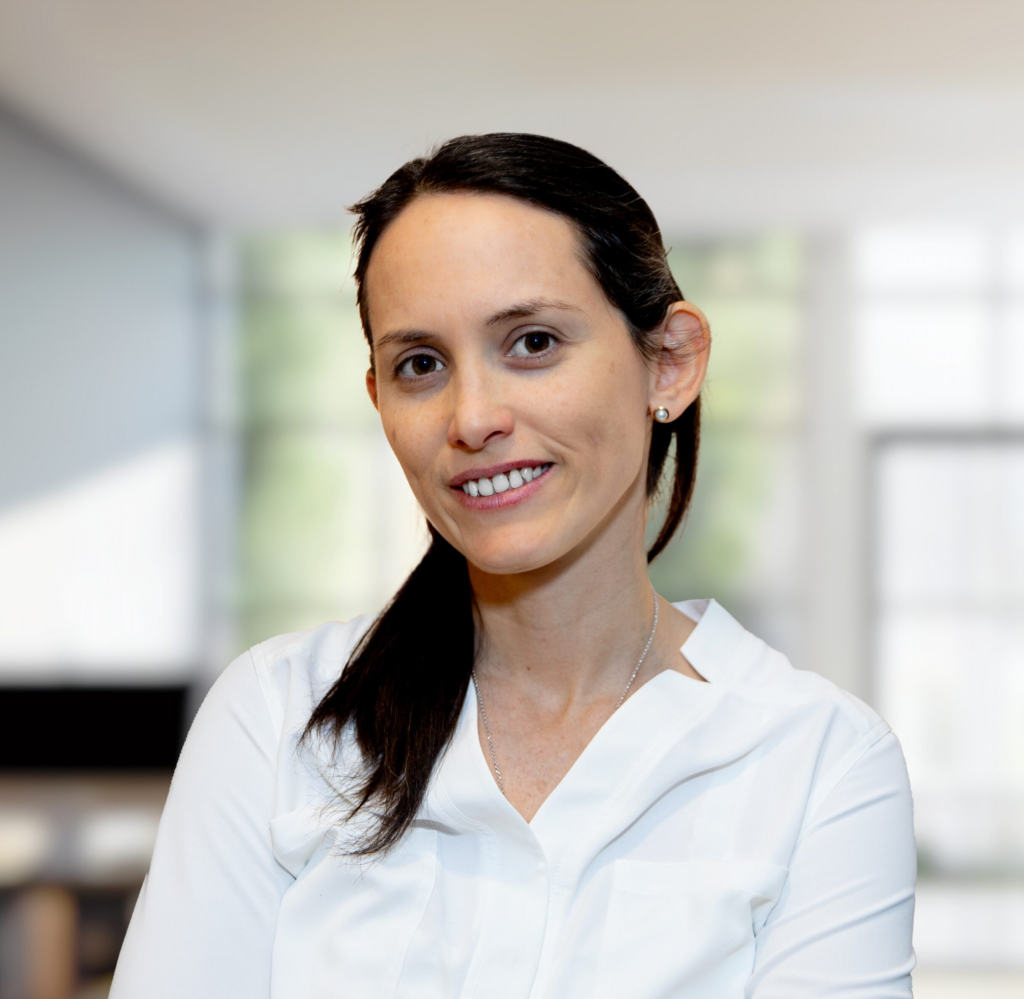
Por Stiven Cartagena
April 10, 2025
In 2024, companies with at least one female founder raised $38.8 billion in VC funding, a 27% increase over the previous year. However, this figure is still well below the all-time high of $62.5 billion reached in 2021.
The figures are the result of the All In: Female Founders in the VC Ecosystem report, published by PitchBook, which analyzes the current state of female entrepreneurs in the VC ecosystem.
Despite the growth in fundraising, the report cautions that changes in public attitudes, including a movement against diversity, equity and inclusion (DEI) policies, could make it even more difficult for female founders to access funding.
While Donald Trump’s executive order, which prohibits federal agencies and government contractors from employing DEI programs, has yet to show its full impact due to court challenges, its eventual implementation could significantly affect women seeking entrepreneurship.
The PitchBook report reveals a complex landscape for women seeking capital for their startups. While the number of funding deals for women-founded companies declined by 13% in 2024, the increase in funding was concentrated in later-stage companies that raised larger sums.
But there is an even more alarming figure: startups founded by women received only 1% of VC funding and accounted for just 6% of all deals. In comparison, male- and female-founded companies together got 20% of funding and 25% of deals, according to Female Foundry.
Just 13 female-founded companies achieved unicorn status, i.e., a valuation in excess of $1 billion. These include Ayar Labs, Writer, Physical Intelligence, The Row, World Labs, EliseAI, Chainguard, Cart.com, Xpansiv, Alumis, Züm, Monad Labs and Celestial AI.
Despite the challenges, female entrepreneurs are excelling in key sectors such as biotechnology, financial technology (fintech) and software, particularly in areas such as business productivity, financial software and drug discovery.
One of the findings of the Female Innovation Index 2025 report is that women in the deep tech sector are raising more capital than their male counterparts. This is partly due to this sector’s links to academia, where women tend to be more equally represented. In Europe, 33% of venture capital raised by women entrepreneurs goes to deep tech startups, 2% more than in non-gendered startups.
Moreover, as these companies grow, their valuation does not increase at the same rate as those founded by men. For example, late-growth or venture-stage companies founded by women were valued at $46.8 million, compared to the U.S. average of $67 million.
According to the report, only 17.3% of decision makers in companies with more than $50 million in assets under management are women.
The challenge is not limited to the United States. In Europe, venture investment in startups founded by women declined by 12% in 2024. Countries such as the United Kingdom, France and Germany lead the list of investments in companies founded by women, while Finland and Denmark have the highest proportion of venture capital allocated to this type of startups.
In Latin America, the situation is even more critical. Only 6% of investment funds are targeting women-led companies, and 73% of small and medium-sized enterprises (SMEs) led by women are unable to meet their financing needs, according to the World Bank. A study by the Development Bank of Latin America and the Caribbean (CAF) revealed that women in Colombia, for example, tend to exclude themselves from the formal financial system due to a lower level of self-confidence.
Faced with these challenges, platforms and communities have played a crucial role in promoting female entrepreneurship. Through mentoring, events and access to investors, these initiatives have enabled many women entrepreneurs to develop their projects in a more favorable environment.
With the challenges we still face in mind, here are 10 women leaders in the startup and business space that deserve recognition in 2025:

Marlene Garayzar is the co-founder of Stori, the first unicorn company founded by a woman in Mexico and the ninth Mexican company to become a unicorn.
Marlene has a degree in International Relations from ITESM and a master’s degree in Administration from ITAM. She has more than 20 years of experience in the financial sector, both nationally and internationally.
Stori is a fintech focused on providing equal access to attractive banking products with digital features in Latin America. The company is headquartered in Mexico City and has teams around the world and uses the best technology to drive the mission of financial inclusion.

Laura Hernandez is a passionate leader in talent development within the technology industry, and is currently a Technology Project Manager at Source Meridian.
Her leadership role helps address gender bias in a male-dominated developing world and brings a fresh perspective.
With over six years of management and team building experience, Laura excels at leading high-performing teams, promoting collaboration and driving professional growth.
At Source Meridian, Laura advises companies on critical certifications such as SOC 2, HITRUST and HIPAA, while actively contributing to projects focused on business expansion, building a strong company culture and developing products that make a significant impact.

Fery Palma is a Mexican entrepreneur, founder and CEO of the companies “Tipis Palma”, a company dedicated to the creation of recreational houses to encourage creativity, imagination and development of children, and “Palmas Pocket”, a luxury leather goods company that designs handmade wine bags made in Mexico.
With more than 12 years of experience, he began his journey with a very small investment, being only his savings, but soon after starting up he overcame obstacles such as fires and economic crises to achieve a 400% growth in the middle of a pandemic.
Its commitment to inclusion and female employment has led to 90% of its team being women, in addition to collaborating with artisans in rural communities.

Odille Sanchez is the leader of the Center of Excellence in Science and Technology-based Entrepreneurship at Tec de Monterrey, which promotes entrepreneurship in Mexico and throughout Latin America. She is also a Mentor at Techstars and Universidad de los Andes, where she supports the next generation of founders and entrepreneurs.
Sanchez is on a mission to help more women start businesses by creating meaningful change within the formal startup ecosystem and supporting a higher proportion of women founders in Latin America.
This includes creating stronger information-sharing networks, such as dedicated conferences, podcasts and social media channels focused on entrepreneurship, public and private accelerator programs dedicated to women founders, and more mentorship programs for female students in business and STEM schools.

Sarah is the Chief Digital Officer of Sim Local, a global leader in eSIM. As a leader in eCommerce with expertise in revenue management and comprehensive customer KPI management, McGarr is central to Sim Local’s strategy.
One of Sim Local’s primary goals is to empower travelers, especially women, by ensuring reliable and seamless mobile connectivity.
With eSIM solutions, travelers can connect to local networks immediately upon arrival, avoiding the hassle of physical SIM cards or costly roaming charges. This enhanced connectivity provides peace of mind and makes business and personal travel more accessible and secure.

As a Partner at Accion, Adelina Dasso is responsible for leading the investment analysis, due diligence and portfolio management of Accion’s Digital Transformation investments in Latin America and India.
Adelina works closely with Accion’s Regional Directors and Accion Advisory to identify new opportunities, support portfolio companies with advisory solutions and provide governance services. Adelina holds an MBA from Duke University in the US, and a CFA and a BA in Economics and Finance from the University of Piura in Peru.
Recently, Accion launched the $152.5 million Accion Digital Transformation Fund (ADTx), which seeks to enable financial institutions to better meet the needs of small businesses that are currently excluded from the financial system by providing growth capital and strategic support for digital transformation.

Valentina Agudelo is co-founder and CEO of Salva Health, where she has led the development of its flagship product, Julieta, an IoT and AI-based device designed to efficiently identify women at risk of breast cancer.
With an MBA from INSEAD and a background in Business Administration, Valentina has built a diverse career focused on driving change and creating scalable solutions.
Last year, Salva Health won the Startup Battlefield 2024 global competition at the TechCrunch Disrupt conference in San Francisco, beating out over 2,000 companies that applied and winning a close competition against the 200 companies that were accepted to apply.

Priyanka Srinivas is an example of an entrepreneurial woman working to tackle multiple challenges at once. DE3PBIO (formerly the Live Green Co.) uses AI-ML and big data to revolutionize the production of active functional ingredients, delivering sustainable solutions at unprecedented speed, scale and efficiency.
As co-founder of the company, Priyanka is leveraging technology to address environmental concerns and improve the health and well-being of human populations through innovative food solutions with tailored precision.
For example, DE3PBIO recently launched human breast milk fats using sophisticated fermentation methods. These yeast-derived lipids mimic the unique composition of human breast milk fat, unlike traditional infant formula that relies on vegetable oils devoid of short- and medium-chain fatty acids.

Ana Aguilar Perez is Project Manager at IMPACT Accelerator, the startup accelerator from ISDI business school in Madrid, Spain.
The accelerator has helped large corporations as well as leading global organizations develop startup accelerator programs to help foment entrepreneurship in industry-specific spaces. Examples include Toyota, UNICEF, and the European Union.
Perez plays a leadership role in managing both national and international initiatives, focusing on business accelerator programs and EU-funded projects. She is responsible for driving the success of RoboSAPIENS, an EU-funded project that seeks to maximize visibility, engagement and long-term impact.
Through these varied contributions, Perez not only helps drive innovative startups, but also creates pathways to change to build the future of work.

Grace Chang, a five-time entrepreneur, is no stranger to the startup world. Her deep understanding of consumer behavior and technology-driven products led her to create Kintsugi.
Kintsugi is the culmination of Grace’s work in developing novel voice biomarker software to detect signs of clinical depression and anxiety from short snippets of free speech. With an API-based platform, Kintsugi Voice integrates into existing clinical workflows and assists clinicians in real time.
Mental health is as important as physical health, but is often not talked about or examined. According to a Kintsugi study, 1 in 6 people suffer from some form of mental disorder, and 1 in 3 young people report suffering from anxiety.

Por Stiven Cartagena
March 12, 2025